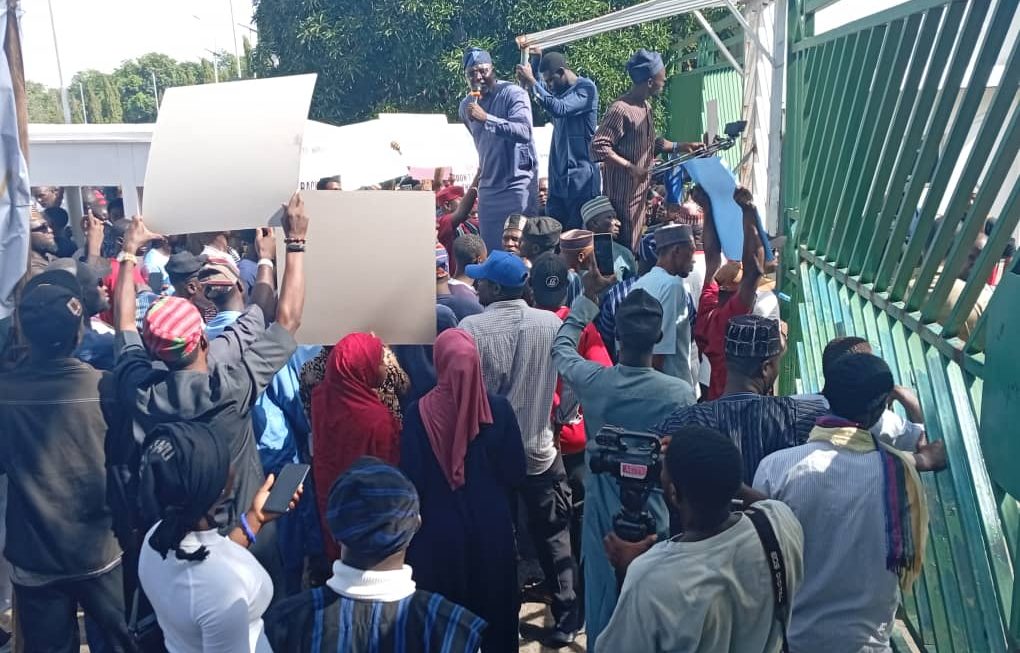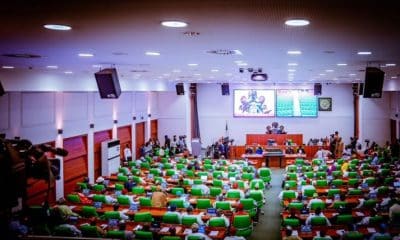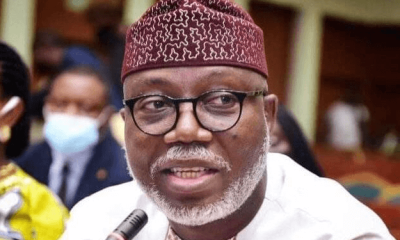Gist
Abuja Residents Storm National Assembly To Protest Alleged Lopsided Appointment

Residents of Abuja stormed the National Assembly on Wednesday to protest the appointment of Mr. Solomon Adodo, a native of Benue State, to the board of the newly formed North Central Development Commission (NCDC).
They called upon Senate President Godswil Akpabio to annul the appointment.
Naija News understands that the FCT Youth Stakeholders’ Forum organised the protest.
The protesters were seen carrying placards with different inscriptions such as “NCDC is not only for Benue State’, ‘Senator Akpabio don’t shortchange people of the FCT’, ‘Benue state has three representatives already,’ ‘Adodo is from Benue State,” among others.
Meanwhile, the House of Representatives has called on the Federal Government to declare a state of emergency in the healthcare system of the Federal Capital Territory (FCT), Abuja.
Furthermore, lawmakers have requested that the federal government formulate a comprehensive long-term plan for healthcare infrastructure development that corresponds with the increasing population of the FCT, thereby ensuring sustainable and high-quality healthcare services.
Additionally, the Green chamber emphasised the Federal Government’s need to allocate emergency funds to enhance hospitals, hire medical staff, and procure essential medical equipment.
Naija News reports that these resolutions were made following the approval of a motion presented during the plenary session on Wednesday by Hon. Nnamdi Ezechi.
In his presentation, the lawmaker highlighted the severe pressure on the healthcare system in the FCT, noting that government hospitals and medical facilities are significantly overstretched, resulting in a critical lack of bed spaces and medical personnel.
Ezechi pointed out that the population of the FCT has increased dramatically over the last twenty years, while many existing government hospitals were built many years ago, with minimal or no expansion to meet the rising demand for healthcare services.
The lawmaker underscored that patients requiring urgent medical care are frequently left without attention or face prolonged waiting times due to the scarcity of hospital beds and the limited capacity of current facilities, which leads to preventable fatalities on a daily basis.












